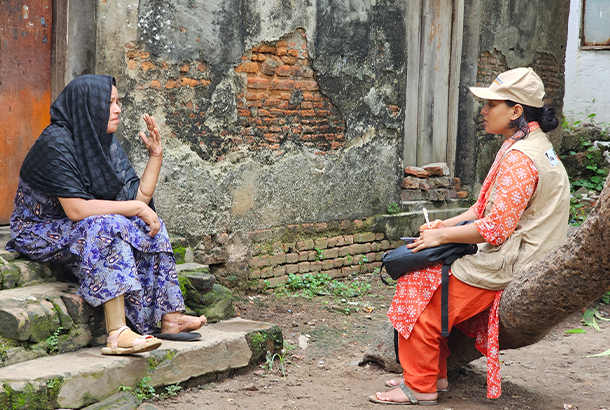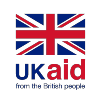Last year, one of the life stories that the CLARISSA Bangladesh team collected was picked as part of UN’s 9 short stories on social protection for their celebration of the 75th anniversary of the Universal Declaration of Human Rights (UDHR). This selection is not just a testament to the powerful story, but also an acknowledgment of the importance of CLARISSA’s social protection work. Read the full story below.

Mamataj’s story: Right to disability protection
Mamataj* lost part of one leg in a burning accident. Life in a slum in Dhaka, the capital of Bangladesh, is already hard enough, but Mamataj’s disability pushed her deeper into poverty and social exclusion.
The accident left her with severe pains on her back and one wrist, making it difficult for her to work. As a result, Mamataj, 38, struggled to pay for her household expenses and for her daughter’s school.
At first, Mamataj received 700-750 Bangladeshi taka (US$6) per month in disability allowances from the State’s Social Services Office. It was not much, but it helped. One day, however, the allowance stopped abruptly, forcing Mamataj to rely on friends and community members to survive.
Mamataj’s case is not rare. Eligible recipients, especially the most excluded and vulnerable in society, often do not receive social protection benefits due to numerous legal and practical barriers, impacting their right to social security.
However, a child rights and advocacy organization heard of Mamataj’s story. Social workers from the Child Labour: Action Research in South and Southeast Asia (CLARISSA) met with her and arranged to have the Social Services Office reinstate her disability benefits.
Social workers also arranged for Mamataj to receive additional cash transfers from CLARISSA’s social protection scheme to help her bridge the gap between her household needs and the government’s social security payments.
“This cash made my life tranquil and now I can save for my daughter’s future,” said Mamataj, who was abandoned by her husband after the accident.
Social security contributes to eradicating poverty and inequality, and to promoting human dignity and social inclusion. It also makes it possible for people to enjoy other human rights, such as the rights to food, housing and an adequate standard of living, to education and to health, especially by marginalized people, including women and people with disabilities.
